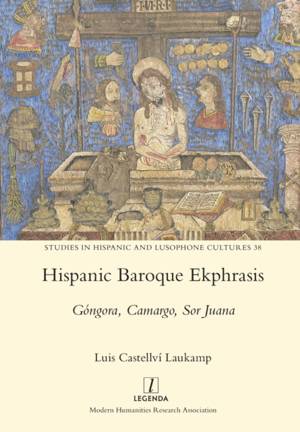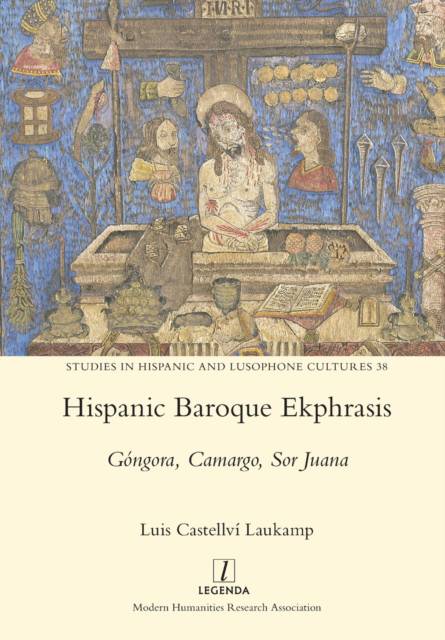
- Retrait gratuit dans votre magasin Club
- 7.000.000 titres dans notre catalogue
- Payer en toute sécurité
- Toujours un magasin près de chez vous
- Retrait gratuit dans votre magasin Club
- 7.000.0000 titres dans notre catalogue
- Payer en toute sécurité
- Toujours un magasin près de chez vous
Description
Analyses of early modern Latin American literature have often portrayed it either as a continuation of the Iberian tradition, or as a reaction against Spanish imperialism. However, such overgeneralisations cannot account for the complex corpus of writing produced in the 'New World'. This is particularly true for the study of Gongorism, the new style developed by the Spanish author Luis de Góngora (1561-1627), which transformed Baroque poetics on both sides of the Atlantic.
In this monograph, Luis Castellví Laukamp examines Góngora's impact on the visual and artistic imagination of two major Spanish American authors: Hernando Domínguez Camargo (1606-1659) and Sor Juana Inés de la Cruz (1651-1695). Its implications extend beyond the Hispanic world to inform broader discussions about poetic influence, transmission of culture, and the relationship between art and poetry.
Luis Castellví Laukamp completed his PhD at the University of Cambridge and is now a Lecturer in Spanish Cultural Studies at the University of Manchester.
Spécifications
Parties prenantes
- Auteur(s) :
- Editeur:
Contenu
- Nombre de pages :
- 236
- Langue:
- Anglais
- Collection :
- Tome:
- n° 38
Caractéristiques
- EAN:
- 9781781888162
- Date de parution :
- 28-03-22
- Format:
- Livre broché
- Format numérique:
- Trade paperback (VS)
- Dimensions :
- 170 mm x 244 mm
- Poids :
- 381 g

Les avis
Nous publions uniquement les avis qui respectent les conditions requises. Consultez nos conditions pour les avis.






